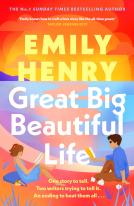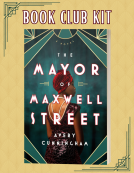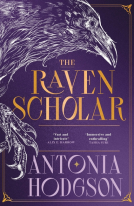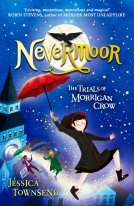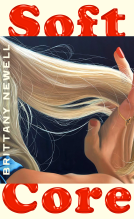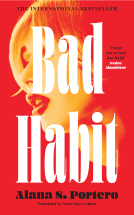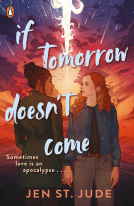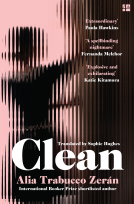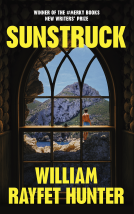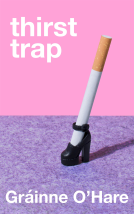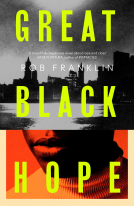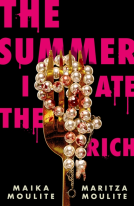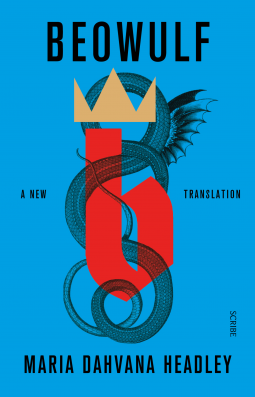
Beowulf
a new translation
by Maria Dahvana Headley
This title was previously available on NetGalley and is now archived.
Send NetGalley books directly to your Kindle or Kindle app
1
To read on a Kindle or Kindle app, please add kindle@netgalley.com as an approved email address to receive files in your Amazon account. Click here for step-by-step instructions.
2
Also find your Kindle email address within your Amazon account, and enter it here.
Pub Date 5 Jan 2021 | Archive Date 28 Feb 2021
Scribe UK | Scribe
Talking about this book? Use #Beowulf #NetGalley. More hashtag tips!
Description
A GUARDIAN, NEW STATESMAN, SPECTATOR, AND IRISH TIMES BOOK OF THE YEAR
A new, feminist translation of Beowulf by the author of The Mere Wife
Nearly twenty years after Seamus Heaney’s translation of Beowulf — and fifty years after the translation that continues to torment high-school students around the world — there is a a radical new verse interpretation of the epic poem by Maria Dahvana Headley, which brings to light elements never before translated into English.
A man seeks to prove himself as a hero. A monster seeks silence in his territory. A warrior seeks to avenge her murdered son. A dragon ends it all. These familiar components of the epic poem are seen with a novelist’s eye towards gender, genre, and history. Beowulf has always been a tale of entitlement and encroachment — of powerful men seeking to become more powerful and one woman seeking justice for her child — but this version brings new context to an old story. While crafting her contemporary adaptation, Headley unearthed significant shifts lost over centuries of translation; her Beowulf is one for the twenty-first century.
Advance Praise
'A book of the year' Marina Warner, New Statesman
‘With a Beowulf defiantly of and for this historical moment, Headley reclaims the poem for her audience as well as for herself.’ Ruth Franklin, The New Yorker
Available Editions
| EDITION | Ebook |
| ISBN | 9781925693775 |
| PRICE | US$29.99 (USD) |
| PAGES | 176 |
Links
Featured Reviews
 Lauren J, Book Trade Professional
Lauren J, Book Trade Professional
This was absolutely fascinating. I've always found the idea of multiple translations of a work really interesting, and my favourite part of this book was Maria's breakdown of her reasons for making the choices she did. It taught me a lot, not just about Old English, but about poetry in general. Her modern take on tone really ticked all the boxes for me. These kinds of oral traditions would have read as very popular entertainment for the masses, and the writing style really drew me into that perspective very well. I now desperately need a copy for my shelves!
As Maria Dahvana Headley states in the introduction to this book, there have been a lot of translations of Beowulf, the Old English epic poem about a warrior fighting monsters. This is a new translation, focusing on updating the verse rather than preserving its antiquity and giving some of the female figures—particularly Grendel's mother—a somewhat better treatment. Perhaps most notably, this version of Beowulf focuses a lot on the modern parallel of oral storytelling and frames the poem like some guy is telling you it in a bar (the poem's opening word, 'hwæt', becomes 'bro!').
I've studied Beowulf both in translation at secondary school and in the original during my undergrad English degree, so the story and general feel of the poem are very familiar, but this translation brings something else to the poem. Possibly it's the clash of old and new—modern slang like 'Hashtag: blessed' and archaisms like 'wyrm'—and the use of swearing and colloquial phrases to get across the meaning of certain lines and phrases which feels quite different to the Beowulf people might be used to. Occasionally the use of 'bro' throughout gets a bit grating, but it's interesting to see which parts could be translated into something much more modern and which stay sounding older.
There's probably some clever things to be said about some of the translation choices and the way this translation is framed, though it's too long since I've actually read another version of it for me to think of anything. I liked the fact that the repetitive nature of the storytelling in Beowulf is foregrounded by giving it the feel of some guy telling you a boring story, only the story is about fighting Grendel and his mother and a dragon.
As someone who loved Emily Wilson's translation of the Odyssey, it was enjoyable to get another modern translation that focuses on updating the language and making the concepts reverberate through time, rather than something that is a reimagining or retelling. This is a readable Beowulf in verse and one that really makes you think about why these warrior men spend so much time sitting around telling heroic stories to one another. I'm not sure what it would be like as an introduction to Beowulf but it's fun if you already know it and can imagine rolling your eyes as some guy tries to tell you the story.
“Bro! Tell me we still know how to talk about kings! In the old days, everyone knew what men were: brave, bold, glory-bound. Only stories now, but I’ll sound the Spear-Danes’ song, hoarded for hungry times.” - opening lines of ‘Beowulf’, 2021.
My thanks to Scribe U.K. for an eARC via of NetGalley of ‘Beowulf: a new translation’ by Maria Dahvana Headley in exchange for an honest review.
This was my first direct experience of the Old English epic poem, ‘Beowulf’ though was aware of its influence on writers such as J.R.R. Tolkien, whose own translation was published posthumously. I found Headley’s storytelling excellent and her use of modern language, including slang, refreshing and accessible. I felt that she embraced the spirit of the epic, bringing it vividly to life. I was especially taken with Beowulf’s encounter with the dragon.
In her Introduction Maria Dahvana Headley writes of her long love affair with ‘Beowulf’ that began when she came across an illustration of Grendel’s mother in a compendium of monsters. She eventually wrote a contemporary adaptation of ‘Beowulf’ - ‘The Mere-Wife’, with Grendel’s mother as its protagonist. It was nominated for the 2019 World Fantasy Award for Best Novel.
In her research for that novel she read many translations and friends encouraged her to work on her own. This is the result.
Will this very modern translation encourage newcomers to read other translations or adaptations of the epic? Well, I certainly feel more confident about doing so after reading it.
Headley’s Introduction also provides background on earlier translations and notes books that may be of interest to those seeking a deeper appreciation. In this respect I would expect that this book would appeal to educators and librarians as well as to general readers such as myself.
I likely will buy the audiobook edition of ‘Beowulf: a new translation’ if it becomes available as I find hearing poetry a powerful experience and I plan to also seek out ‘The Mere-Wife’.
4.5 stars rounded up to 5.
"Bro, Fate can fuck you up"
A fantastic new translation by Maria Dahvana Headley. The language trips easily off the tongue as the story flows. The modern slang adds clarity and emphasis to the translation, as well as reinforcing the feel of drunken storytelling (with plenty of manly boasts!).
I also found the foreword interesting - Headley is clearly passionate about the poem, and compelling in the arguments she makes for certain translation choices - Grendel's mother is a 'warrior-woman' rather than the whore or monster of some translations.
I suspect the slang will become dated in years to come, however right now this is a very enjoyable read, and a good introduction to Beowulf. I highly recommend it.
A beautifully translated epic story; "Beowulf" is a complex poem, and a bit intimidating, yet reads like modern fantasy.
